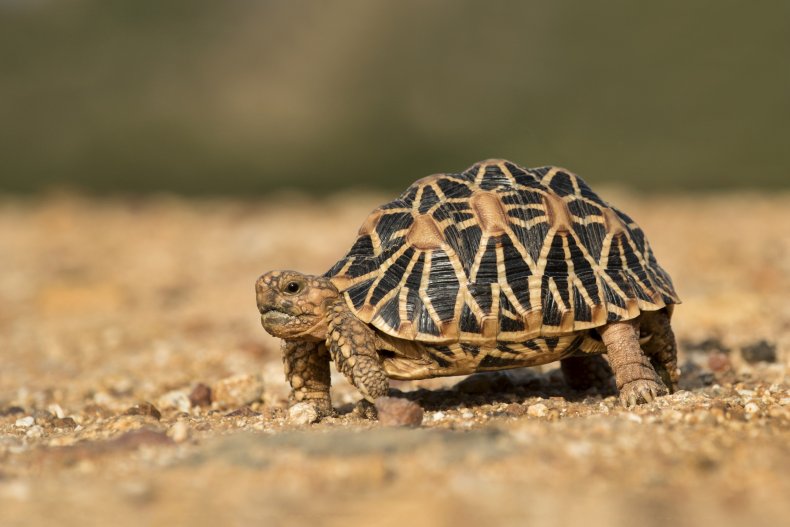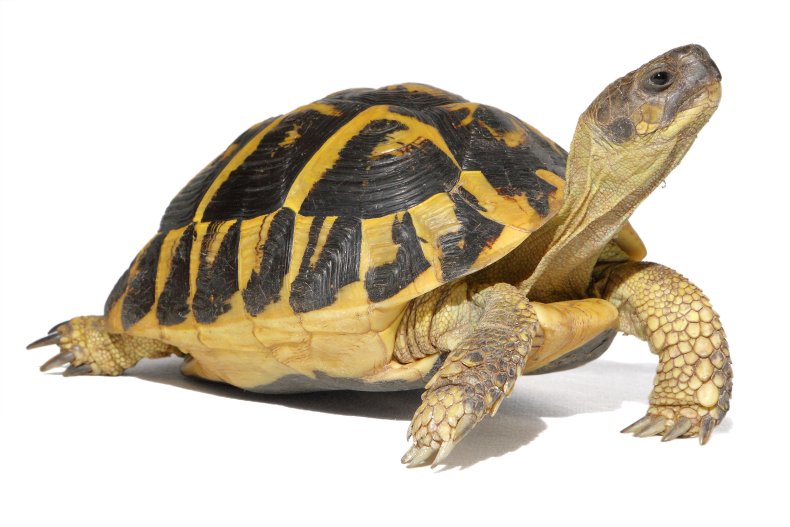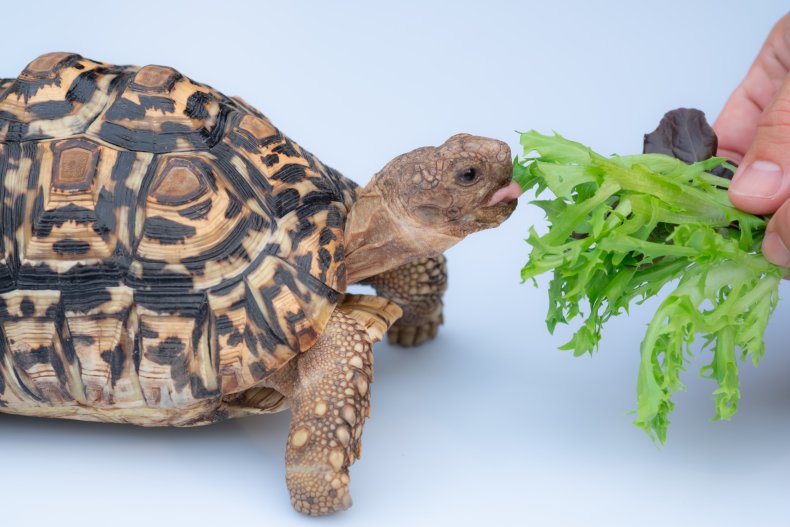What Do Tortoises Eat and How Much Do They Cost? - Newsweek
If you've had pets for a while and are looking for something a bit different, tortoises could be right for you. However, before you get one, there are several elements to consider.
Their size varies by breed and not all are suitable as pets due to their large size. While, breeds such as the Hermann's tortoise and red-footed tortoise can make great family pets, according to the Texas A&M College of Veterinary Medicine & Biomedical Sciences.
So, what do tortoises eat and how much do they cost? Newsweek asked the experts.
The Difference Between Turtles and Tortoises
Tortoises are reptiles that fall within the Testudinidae turtle family. While turtles usually spend most of their time in water, tortoises are land-dwelling turtles that only go in the water to drink or bathe, explains Dr. Kristin Berry at the California Turtle and Tortoise Club website.
Tortoises are distinguished by their high-domed shell and thick hind legs shaped like that of an elephant, with round and stumpy feet for walking on land.
Many of them have spiny scales on their front legs which help them burrow in the earth.

How Much Is a Tortoise?
The price of a pet tortoise varies according to the species. But on average, most cost about $110 to $135, Andy C. Highfield, the director of the Tortoise Trust charity in the U.K. told Newsweek.
Older tortoises tend to be more expensive due to them having a lower risk of health complications that baby tortoises may come with.
Maintenance costs, including food and power bills, can range from around $50 to $100 per month, depending on several factors.
But over time, these monthly expenses can add up because tortoises are known for their longevity. Some land tortoises live up to 150 years or more, according to the San Diego Zoo Wildlife Alliance.
Tortoises are certainly not "low cost" animals if you're properly maintaining them, Highfield said.
Considered "exotic" animals, should tortoises become ill they will require the services of a specialist veterinary surgeon. "This can involve long journeys and the cost will be considerably higher than seeing a general practitioner," the Tortoise Trust director noted.
Other costs to consider include energy usage. At certain times of year, outside of their natural range, tortoises will need artificial heat and special full-spectrum lighting and "the costs of these can soon mount up," the author explained.
Susan M. Tellem, the executive director of the American Tortoise Rescue, told Newsweek: "The maintenance cost can get quite high if they get sick."
The average cost of an "exotic" veterinarian can be around two to three times that of a dog or cat veterinarian, she said.
"Fresh food is expensive, especially now with inflation. Heating tortoises like the sulcata in winter can get pricey," she said.
Where to Buy a Tortoise
Those considering owning a pet tortoise are advised to preferably adopt one or be sure to only buy one from a reputable breeder.
Highfield said: "It is important to stress that the trade in wild-caught tortoises is both damaging to threatened species and involves substantial cruelty.
"We strongly advise that anyone considering keeping one as a pet to insist on genuinely captive-bred animals only," he added.
Tellem urged: "Never buy a turtle or tortoise. There are many rescues throughout the U.S. and elsewhere that have them for adoption. The ones that are sold are often taken out of the wild or bred for profit.
"The pet industry thrives on small, adorable exotic animals with a big price tag," she said. "What we are recommending is to avoid impulse buys."
Dr. Alice Blue-McLendon, a clinical associate professor at the Texas A&M College of Veterinary Medicine & Biomedical Sciences, advised: "In almost all circumstances you should not take an animal from the wild and turn them into a pet.
"You change their life forever and potentially decrease their life expectancy," she added.
What Do Tortoises Eat?
A tortoise's diet heavily depends on the species. For example, tortoises from arid environments have a completely different diet than those from humid rainforests. So owners need to be incredibly well-informed about the precise needs of the tortoise species they're looking after, Highfield said.
Providing the correct diet for your tortoise is challenging, as it entails having the right balance of fibers, minerals (especially calcium), carbohydrate and protein levels appropriate to their species to avoid any problems, the Tortoise Trust director explained.
"Providing the wrong diet will invariably have catastrophic consequences. Vets encounter a huge number of sick tortoises with serious and often irreversible growth deformities every year. This is one of the most common health issues with tortoises vets see," the author said.
Tortoises are vegetarians, so they are plant eaters, Tellem said. Their diet can include a range of plants, from low-growing shrubs and grasses to even cactus.
Some tortoises can also eat fruit, while others cannot, Tellem added.
Blue-McLendon from the Texas A&M College of Veterinary Medicine & Biomedical Sciences suggests feeding them primarily leafy greens, while drinking water should be available at all times for tortoises.

Food Tortoises Should Not Eat
There are many common plants that are toxic for tortoises and owners should be mindful of this when their tortoise is left in a garden or a yard.
Tellem warned: "There are many kinds of vegetables to avoid that can cause metabolic bone disease, which is very dangerous and deadly."
See a list of plants that are poisonous to tortoises at the websites of the nonprofit Tortoise Group and the California Turtle & Tortoise Club.
Do not feed cat or dog food to tortoises or "think it is fun to offer a hot dog" to them, Tellem added.
While there is some food for tortoises available at pet stores, this food may not be nutritionally balanced, according to the Texas A&M College of Veterinary Medicine & Biomedical Sciences.
So it's crucial to do your research to determine the diet that's most appropriate for the species and life stage of your tortoise.
Highfield noted today, we have some "very good information" available about taking care of tortoises. But "equally, social media in particular also contributes to a rising tide of poor quality and dangerous advice."
He advised: "Owners need to be very particular as to which books or other sources they rely upon. There is a lot of contradictory advice out there. Be discerning and educate yourself about the true needs of the species you keep."



Comments
Post a Comment